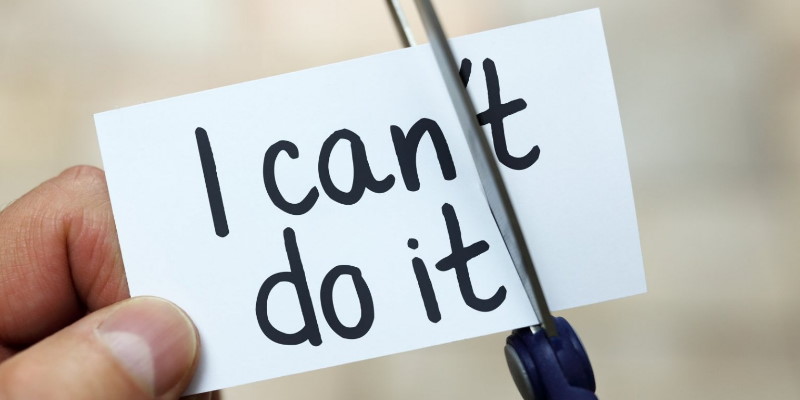Table of Contents
How long does it take to learn Spanish? Such questions frequently come up. Unfortunately, there is no simple answer. You have to decide for yourself. A list of the time requirements for learning different languages is available at the Language Institute of US Foreign Service.
Based on classroom instruction, Spanish requires 480 hours. However, language learning is not limited to classrooms. Outside factors often need to include. Learning a language doesn’t matter whether you do it in a classroom or a group setting. Several factors determine your ability to learn a language. Some of them are mentioned below.
You like Spanish, Don’t you?
Spanish sounds good to you, don’t you think? What do you like about the culture or history of countries where Spanish is the native language? Are you friendly with anybody who speaks Spanish? Do you enjoy watching Spanish films or listening to Spanish music? Is there a particular Spanish-language musician or actor you admire?
Answering these questions with a yes will accelerate your learning process. Our brains are engaged in language learning in many ways. The level of emotional commitment you have to a new language influences both how hard you study and how well you learn.
How Much Time Will You Spend Studying Spanish per Day?

There are many factors to consider, and they do not necessarily involve in how long does it take to learn Spanish in the language classroom. In other words, it refers to the amount of time you spend listening, speaking, reading, or writing Spanish. When you walk your dog, listen to podcasts, read, watch movies, listen to songs in Spanish, or have a conversation in Spanish, you are speaking Spanish.
Outside of the classroom, the amount of time you spend is more intense than in the class, unless you get one-to-one instruction. According to the FSI, if one person spends three hours daily learning Spanish, 480 hours would equal 160 days, less than six months. It will take 480 days or one and a half years for some people thinking how long to learn Spanish?
If they spend one hour a day working on it. But of course, some hardest languages to learn can take more time. An hour’s daily commitment will accelerate the process considerably.
Whether or not people attend classes, they will learn three times easier if they spend three hours learning each day. Since the added intensity of learning makes them learn faster than ever before, it is even possible that they will learn three times faster than before.
Read Also: How Long It Takes to Learn a New Language
How Similar is Your Language to Spanish?
The same thing you can apply to pronunciation, grammar, and vocabulary. Portuguese shares many vocabulary and grammar features with Spanish, but its sounds are different.
The pronunciation of Greek is similar to Spanish, but the words and grammar are varied. Spaniards will probably understand Portuguese quickly, though their accents may be heavy.
They are good at learning pronunciation very quickly, but Greek would take them much longer. It is because the two languages share a large amount of vocabulary. Spanish and English have much in common.
To acquire new vocabulary, language learners must invest a great deal of time. You only have to become familiar with the new language words over time. Our first experience with a new language is strange as we are exposed to new sounds and sounds combined.
There are few sounds in Spanish compared to English, which can seem like the words are similar. Adapting to this takes some time for the brain. Speaking English gives you an advantage if you are seeking how long does it take to learn Spanish? A new language also takes time for our brains to adapt.
There are a variety of explanations for Spanish tenses or the omission of the personal pronoun, but these are not satisfactory. To become familiar with these new structures, you only need to hear and read Spanish enough.
When you have learned another language that shares some patterns similar to Spanish, you may learn Spanish faster.
Before think how long to learn Spanish, you need to know about you have the ability to become fluent in Spanish? Are you considering learning another language? You won’t have trouble picking up a few phrases if you only want to practice a few times. In contrast, you must believe you can become fluent.
Can You Achieve Fluency in Spanish?
Are you striving to become fluent in a second language? There’s no need to spend a lot of time learning a few phrases. Furthermore, if you want to become fluent, you must believe it is possible. Those who have learned other languages do better in new languages because of their experience. Their previous experience gives them an advantage.
It is their confidence that makes the difference. When studying a foreign language, you need to have a positive attitude.
You can visualise yourself becoming fluent, even before you become fluent, which will determine your determination to succeed. Knowing what your end goal is when you begin will make learning easier. Listen, watch, and read Spanish-language media without restriction.
Your Spanish language skills will take off once you begin to pursue these activities, even if they are imperfect at first Allow yourself the benefit of the doubt if you are still learning another language.
The chances of you reaching the top of a mountain are slim if you don’t believe you can climb it. How long does it take to learn Spanish? Almost all of it depends on you.
Did You Ever Live in an Area Surrounded by Spanish Speakers?
Are you planning for more time spent in a Spanish-speaking country than just a couple of weeks? Would you enjoy talking to your Spanish-speaking friends and listening to them for hours at a time? Using Spanish in a real-life situation increases your likelihood of learning the language.
An experience in the real world of Spanish speaking is more valuable than learning Spanish in a classroom.
You might be hesitant to apply what you have learned if you encounter real Spanish-speaking people. Despite your shyness, you will benefit from forcing yourself to overcome it.
Real-life exposure helps you identify your weaknesses and determine what you need to work on in your Spanish learning activities. Maybe you can spend a few weeks in a Spanish-speaking country and even enroll in a language school there.
In my opinion, the best time to travel to a country where a language is native is not when I’m just starting to learn, but once I’m at a level where I can fully appreciate the benefits of immersion.
I challenge myself to learn something new when I already understand a fair amount. Online resources like Unlimited Spanish and other apps or websites can assist you in getting started.
Spend at least six months studying on your own, and then, as a reward, arrange to travel to a Spanish-speaking country. There are Spanish programs in most Spanish-speaking countries, each having its own attractive culture.
Are You Motivated to Become Fluent?
If you are studying Spanish, of course, you want to become fluent without thinking how long does it take to learn Spanish? Am I right? It is not uncommon for people to begin learning a language purely out of necessity.
A teenager may be required to study Spanish as part of the compulsory school curriculum, or his parents may want him to learn Spanish to better his future employment prospects.
If you already work for a company with Spanish or South American customers, your boss may require you to learn Spanish No matter what, if you have to do something, you don’t always do your best. It is therefore vital to consider this last aspect.
Stay Motivated in 4 Ways

You can learn Spanish fluently well if you are motivated. A positive attitude and motivation are necessary to achieve any goal, including learning Spanish. Below are the points.
1 – Clarity
To learn a new language successfully, you will need to plan your steps, and these steps will need to fit into an accurate timetable.
Unless you have a clear goal of achieving fluency, you only get distracted and give up quickly. You must decide for yourself which set of actions is the best in your case and stick with it if you want to have this clarity.
2 – Engagement
Make sure you don’t put yourself in too great a challenge when learning a new language. To fully maximize your energy in learning the language, you have to find the balance that takes you into a flow state.
Perhaps it’s time to change your learning method to get into this productive flow state if you do not feel fully engaged with your current learning method.
3 – Consistency
It is possible to strike a good middle ground in many cases. Learning approximately one hour a day appears to be the “sweet spot.” Working, attending school, having a family, and attending social events consume most of our time. There is little patience to learn a language over four years, so we need to study Spanish at a moderate level.
Even if you can devote more than an hour a day, the more difficult it will be to maintain a consistent pace the longer you spend. You must ask yourself, do you work just for the sake of working, or do you have more important tasks to perform?
Many people waste a lot more time than they realize, wasting their time with activities that only keep them busy, yet do nothing to help move them forward to accomplish what matters most to them. It’s not as challenging as you think to gain an hour a day.
4 – Aim
How long to learn Spanish? An unfamiliar language is difficult to learn. Defining your goal is the key if you want to become success. You must know your motivation for learning this language. You must have a good reason for wanting to learn this language.
It does not matter if it is for personal connections or for learning more about the culture of another country. It is what will motivate you to overcome obstacles. Also, stay focused on your goal at all times.
But how? Being fluent in Spanish offers many benefits, and you will feel proud of yourself for achieving a challenging goal.
It is not only about making your parents, teachers, or boss happy, but about your self-esteem, confidence, and self-respect. According to this article, it is entirely up to the individual how long does it take to learn Spanish. Eventually, you will become fluent in Spanish, so don’t give up if you make a few mistakes.
In a Nutshell
Putting in one hour per day on your Spanish should allow you to become conversationally fluent in 9 months to one year. You will have spent 300 – 350 hours learning the language.
Suppose you take Spanish lessons two times a week, and you do your homework and review what you have learned in the remaining time between practices. It is most efficient to learn Spanish in this manner. Using Verbalicity, a student may have a schedule resembling this:
- Monday: (Lesson from 8:00 PM to 9:00 PM) after your dinner.
- Thursday: (Lesson from 7:00 AM to 8:00 AM) before going to your work
- Saturday: (homework assigned by your teacher with a cup of coffee)
- In Daily Basis: (15-20 minutes of vocabulary practice)
So how long does it take to learn Spanish? The process can’t happen by itself, but it doesn’t take as long as you think. If you have a busy schedule or are a full-time student, this learning plan can fit into your schedule. It averages out to about 1 hour a day. There is no problem with learning without a teacher.
It’s just a matter of making sure you practice speaking regularly, via language exchanges or meetups, and being much disciplined about completing your studies. While it will take a long time to become fluent, you can still become fluent within a year when learning with an instructor.

Ihsan Sharif is a talented writer known for his engaging articles on linguistic topics. With a keen eye for detail and a passion for language, Ihsan brings complex linguistic concepts to life, making them accessible and interesting to a wide audience.

